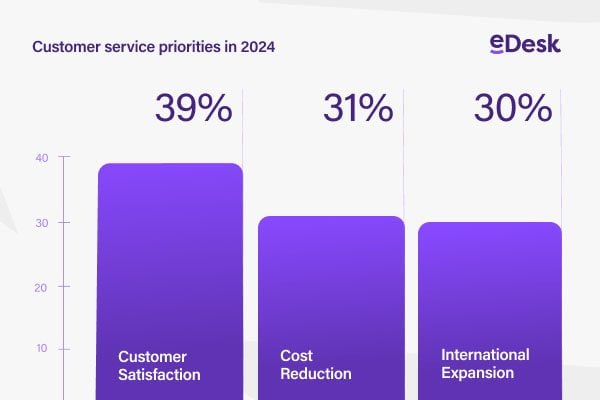The Department for Transport (DfT) has published a position statement on last mile logistics which should be concerning for everyone involved in ecommerce. One of their suggestions is a mandatory delivery charge which would impact every ecommerce sale in the UK.
The mandatory delivery charge would be intended to radically change consumer behaviour in the same way that the plastic bag charge in Supermarkets was intended to discourage plastic carrier bag use. (The reality is that in Sainsbury’s every time I get to the checkout they offer to sell me a bag for life – apparently, so they tell me, it’s company policy to try and flog me a plastic bag in case I’ve forgotten to bring one so no so much discouraging plastic carrier bag use as selling me one with even more plastic in it!).
A mandatory delivery charge would obviously spell the end for services such as Amazon Prime and Free Delivery for all ecommerce. It’s likely that a mandatory delivery charge wouldn’t be something that the retailer was allowed to swallow but would be invoiced direct to the customer.
There are some sensible reasons behind a mandatory delivery charge – discouraging consumers from buying and then returning, encouraging consumers to bundle their purchases into a single delivery and encouraging consumers to move away from next-day delivery to make delivery possible at a convenient time from a logistics perspective – for instance when neighbours are also having a delivery the same day (although for Amazon this currently appears to be every day!).
There is currently a two-fold push to address ecommerce deliveries as we exit the coronavirus lock down. One is the desire to get people back to the high street and the second is to reimagine the country we live in to be a greener more environmentally friendly place to live.
I have news for the government – for the past three months Britain has been cleaner and less polluted than any time for decades as everyone sat and home and didn’t jump into their cars to go to work or the shops and the only thing moving on the road were delivery trucks. Surprisingly delivery exclusively didn’t work out that badly for the atmosphere.
However the high street is a different problem and one that tacking on a mandatory delivery charge won’t solve. The high street as been challenged by the Internet for years and popping a supplement on deliveries won’t solve it any more than it stops some people coughing up 10-20p for carrier bags because they still can’t be bothered to take a bag when they go shopping.
Who would collect the mandatory delivery charge?
As with all taxes, someone will end up being an unpaid tax collector. At this stage the Government has not indicated who this might be and whether they’d dump the job on the couriers or the retailer. Chances are that it would be the retailer as they would have to re-bill the consumer as if it was the carrier then retailers could swallow the cost and consumer behaviour wouldn’t be impacted or changed.
It’s also not as simple as it might sound as the charge would alter the entire dynamics of the delivery world. For instance if you purchase two items, one small and light and the other large and heavy then it wouldn’t be easy to combine shipment. As an example, if you purchased a washing machine and USB cable online from a high street electrical retailer then they’d be coming from different warehouses with different carriers. If you placed a single order would you get one or two delivery charges? Would retailers rejig their delivery profiles to bundle orders for the convenience and costs for the consumer or would they simply bill the consumer twice for two deliveries simply because they can’t easily delivery as a single consignment?
The Department for Transport position statement has some other interesting ideas such as carrier collaboration but passing parcels between carriers isn’t going to be easy either. Who gets paid and will the partner carrier offer the same service that the retailer paid for? What about free competition or will there be a local last mile carrier that saves up everyone’s parcels and delivers them if and when there are enough to justify a trip down your road?
It could be worse…
It could be worse however, in what I can only describe as an incredibly ill-thought out plan, Southend Council’s deputy leader Ron Woodley has written to the Local Government Association calling for a 20% delivery tax for ecommerce.
“I do believe that a 20 per cent delivery tax on out of town deliveries from places like Amazon needs to be looked at as it will level up the playing field between local shops and those delivering from these big warehouses. This could mean the cost going to the buyer but if the companies start making themselves more expensive then people will be more encouraged to shop locally anyway. We need to do as much as we can to encourage people back into our town centre and restaurants.”
– Councillor Ron Woodley, Southend
This has to be considered a crack pot proposal – businesses already collect 20% VAT so an additional 20% delivery charge would mean direct taxation of 40% on every product sold online. Sure there is a discussion to be had around Business Rates and how they are shared between the high street and out of town warehouses, but if there’s a high street retailer out there paying 20% of their gross sales as Business Rates then their business won’t be saved by dinging ecommerce.
Key takeaway – Delivery frequency and environmental impact needs addresssing
The key takeaway here is that ecommerce is under the spot light and, at some point, it may be that pressures lead to a mandatory delivery charge of some description but it certainly won’t save the high street. It might however be attractive to a government trying to balance the books!
(PS As a side note, if the government were serious about reducing plastic carrier bag usage how about an outright ban with the only bags allowed to be sold being hessian carrier bags with a minimum charge of £5 or £10? A ten bag supermarket shop with £50-£100 added to the bill for bags would soon remind consumers to bring their own!).










7 Responses
I’m from Southend and trust me, pay no attention to Ron Woodley, that man couldn’t organise a P-up in a brewery. All Southend Borough Council have done the last 10years is blame Amazon for their own failing high street (whereas other parts of Essex like Chelmsford, Colchester, Epping, Braintree, Billericay and Thurrock Lakeside have been doing relatively well). Any Southender knows the real reason people avoid the high street – punitive parking charges (if you can find a space), a high number of aggressive beggars and petty criminals combined with lack of police presence – it is an unpleasant experience and not family friendly by any means. Half the shops in the high street are boarded up and since the Victoria shopping centre was refurbished in 2006 it’s only ever filled about 25% of its capacity. It used to be 90% full of shops, but those all had to be kicked out for the big refurb.
So there’s that.
Also, Alfred E. Schapps would do well to raise some money by scrapping the absurd HS2 project instead of punishing small online businesses. If this plan goes ahead thats it, im done with my online shop, its the last straw. Constant increases in postage prices and now this – would make it virtually impossible to make any profit.
The key take away here is Chinese sellers have been doing what the hell they like for 7 years . O% vat and 0% delivery charge which special postal, ebay and Amazon rates, all wrapped in some faketastic reviews.
Nothing had been done.
The government shouldn’t embarrass themselves further.
Just rule out Free Delivery per se and keep competitive looking prices. Or if Free Delivery is the draw, then place a delivery charge BUT adjust your selling price to make it look like a Free Delivery deal. It’s what shown on paper is the crunch point for Sellers, and the item price (excl. del) for the Buyers.
So, free delivery to be charged for? Well that’s a fantastic idea which plays right into the hands of Amazon. They’re trying their hardest to destroy small sellers as it is with their punitive approach to us.
We’ve actually started charging delivery seperately on Amazon, so if the buyer wants to return we at least recover the delivery charge. It’s hard enough to make a profit on Amazon now without losing money on returns.
How about the government actually looks at taxing Amazon a fair amount and looking at their awful business practices.
Well it’s just a position statement at the moment, which means if there’s enough noise they might have to rethink that one. They don’t seem to realise that trying to force people to bricks and mortar is going to damage small businesses too. People who don’t visit shops often would probably still pay the fee, because let’s face it, the journeying times, fuel costs and car parking fees can make it a little prohibitive.
Having grown my ecommerce business over 10+ years, what I am about to say seems like “turkeys voting for Xmas” but I think there should be an increased tax on ecommerce by way of VAT just because it is simple to implement.
5% seems sensible.
( Office of National Statistics (UK), the country’s e-commerce revenue in 2018 amounted to 688.4 billion GBP) @ 5% = £32.7bn. (688 / 1.05)
We need to pay our country’s debts AND cover NHS and social care SIGNIFICANT increasing costs.
5% wont be enough to push people to the shops though.
Chinese sellers time is up soon when the EU and UK reforms things (I think next year)